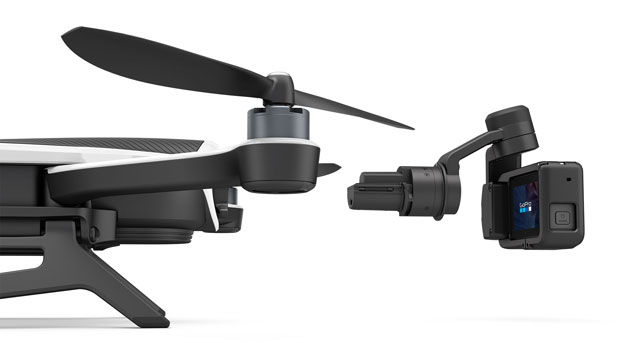
GoPro, struggling to get traction with its action-cameras and new drone, said it will eliminate about 15% of its workforce and shut down its entertainment division to reduce costs.
The company, which isn’t profitable, will cut more than 200 full-time positions, according to a company statement on Wednesday. Tony Bates, who joined as GoPro’s president in June 2014, is stepping down by the end of the year. He was previously an executive vice-president at Microsoft and the CEO of Skype.
The closing of the entertainment division is a signal that the company is finally narrowing its vision. Wall Street has long been sceptical about GoPro’s plans to build a media company around its action-packed GoPro videos online. The shares rose as much as 4,5% to US$10,27 in premarket trading.
“Consumer demand for GoPro is solid and we’ve sharply narrowed our focus to concentrate on our core business,” said CEO Nicholas Woodman in the statement.
GoPro said the restructuring will reduce operating expenses to about $650m in 2017 and achieve its goal of returning to profitability next year. The company estimates it will incur as much as $33m in restructuring costs.
GoPro had been banking on its most recent cube-shaped camera model, the Hero5, and its Karma drone, released in October, to revive growth and a stock price that has plummeted by more than 50% in the past year. So far, those products failed to be the hits that management had been expecting and earlier this month GoPro lowered forecasts for full-year sales as third-quarter revenue came in lower than analysts’ average estimates.
The company blamed the disappointing results on production problems. A week later, GoPro had to recall about 2 500 drones. The company still hasn’t said whether Karma shipments have resumed.

It also faces a class-action lawsuit that claims the company violated federal securities law by making false and misleading statements about the drone. The complaints include allegations that GoPro knowingly overstated the capabilities of the drone and consumer demand for the product.
Shebly Seyrafi, an analyst at FBN Securities, is lowering his forecast for 2017 revenue from the Karma to $36m from $150m, he wrote in a note on Tuesday.
After being a one-time tech darling, San Mateo, California-based GoPro is now facing rising competition from Apple and even Snap (developer of Snapchat), whose camera glasses are also promising a seamless experience from capturing adventure film to posting on social media.
In drones, GoPro is up against the dominant player, Chinese manufacturer DJI, which also released a new model just a week after GoPro. — (c) 2016 Bloomberg LP




